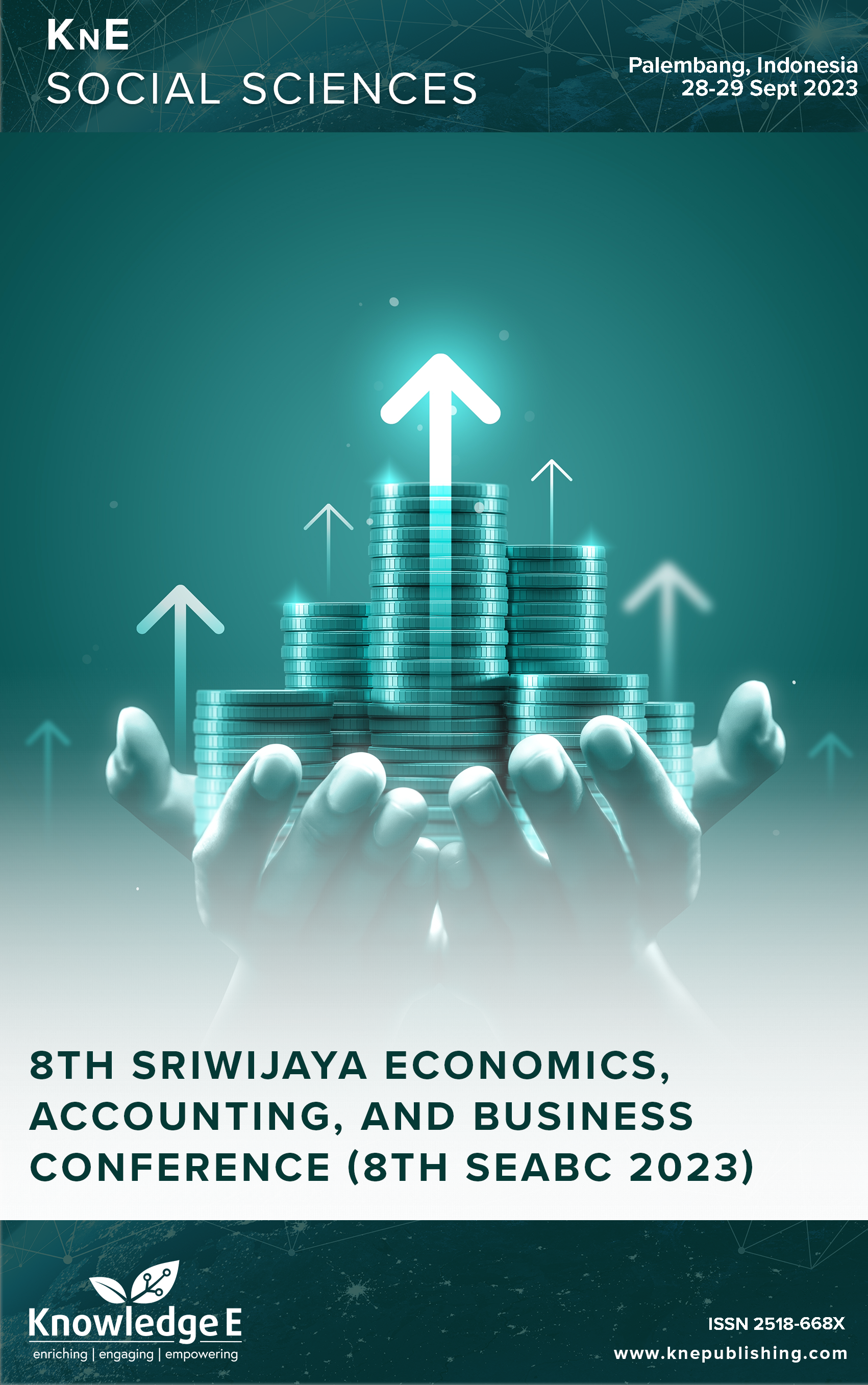Modification of the Model for Measuring Zakat Funds on Poverty Levels in South Sumatra
DOI:
https://doi.org/10.18502/kss.v9i14.16092Abstract
Poverty level in South Sumatra is very high, so special care must be taken to reduce the problem, inversely proportional to the high enough zakat potential. The regulation on zakat using the payroll system from the salary of every government employee has been implemented. This regulation has a positive impact on collecting zakat funds in South Sumatra, however, the position of zakat in helping the government to reduce poverty in this province needs to be explored further in scientific work. Hence, a case study of 120 zakat recipients managed by the national board of zakat (BAZNAS) was conducted by analyzing the impact of the distribution of zakat, infaq, and sadaqah in reducing poverty based on the CIBEST model. It was noted that the distribution of zakats, infaq, and sadaqah carried out by BAZNAS can significantly reduce poverty, the provision of zakat funds in the form of venture capital that was on target was able to increase the welfare index by 57.84% and the spiritual index to 4276 which was previously only 3970.Additonally, the mustahik income and the poverty index both materially decreased by 24.77% while the absolute poverty index decreased by 100% or no more categorized as material and spiritual poor.
Keywords: zakat, poverty, CIBEST model
References
Qardhawi. Spektrum Zakat dalam Membangun Ekonomi Rakyat. Zikrul. Jakarta, 2005.
Meylani. Indikator Kemiskinan dan Pendapatan Mustahiq (Studi Kasus : Program Ikhtiar di Desa Ciaruteun Ilir, Kecamatan Cibungbulang, Kabupaten Bogor). 2009.
Rijal K. Analysis of online portal and e-payment application usage: A case study of BAZNAS Indonesia. International Islamic University of Malaysia; 2018. pp. 43–51. DOI: https://doi.org/10.37706/iconz.2018.116
Tang B, Gallien TW. Predicting compound coastal flooding in embayment-backed urban catchments: Seawall and storm drain implications. J Mar Sci Eng. 2023;11(7):1; Epub ahead of print. DOI: https://doi.org/10.3390/jmse11071454
Beik A, Arsyianti LD. Construction of CIBEST model as measurement of poverty and welfare indices from Islamic perspective. Al-Iqtishad J Ilmu Ekonomi Syariah. 2015;7(1):87–104. DOI: https://doi.org/10.15408/aiq.v7i1.1361
Khaf. Zakah Management in some Muslim society. Islamic Research and Training Institute Report; 2000.
Rouijel R, El Marzouki A. Marketing and management research. Proceedings of the EMM 6th International Conference on Business Economics. 2018; 78–85.
Arikunto S. Prosedur Penelitian Suatu Pendekatan Praktek. 5th ed. Jakarta; 2022.
Beik IS. Analisis Peran Zakat dalam Mengurangi Kemiskinan: Studi Kasus Dompet Dhuafa Republika. Jurnal Pemikiran dan Gagasan. 2009;2:45–53.
Widyaningsih. Studi Dampak Zakat di Sulawesi Selatan dengan Model CIBEST. Journal Al-Iqtishad. 2016;18:37–50.
Arif M. Zakat as a mode of poverty alleviation. International Journal of Economics & Management Sciences. 2017;06(6); Epub ahead of print. DOI: https://doi.org/10.4172/2162-6359.1000473
Beik IS, Arsyianti LD, Permatasari N. Analysis on the determinant of millennials’ zakat payment through digital platforms in Indonesia: A multinomial logistic approach. J Islamic Mark. 2023. DOI: https://doi.org/10.1108/JIMA-09-2021-0313
Hasanah U. Peran Zakat Produktif di Badan Amil Zakat Nasional di Provinsi Sumatera Selatan untuk Meningkatkan pendapatan operasi Mustahik di Kertapati Palembang. Universitas Islam Negeri Raden Fatah Palembang; 2018.
Hassan MK, Muneeza A, Sarea AM, editors. Mahomed. Modeling Effective Zakat Management for the ‘Stans’ of Central Asia and Establishing Pandemic Resilience Asia and Establishing Pandemic Resilience. Emerald Publishing Limited; 2022. pp. 143–59. DOI: https://doi.org/10.1108/978-1-80071-625-420210008
Ayuniyyah Q, Huq Pramanik A, Md Saad N, Irwan Ariffin M. The comparison between consumption and production-based zakat distribution programs for poverty alleviation and income inequality reduction. International Journal of Zakat. 2017;2(2):11–28. DOI: https://doi.org/10.37706/ijaz.v2i2.22
Hudaefi FA, Beik IS. Digital zakah campaign in time of Covid-19 pandemic in Indonesia: A netnographic study. J Islamic Mark. 2020;12(3):498–517. DOI: https://doi.org/10.1108/JIMA-09-2020-0299
Kasri RA, Yuniar AM. Determinants of digital zakat payments: Lessons from Indonesian experience. J Islamic Account Bus Res. 2021;12(3):362–379. DOI: https://doi.org/10.1108/JIABR-08-2020-0258
Mainul QF, Sulistiyo AB, Roziq A. Influence policy liabilities, size, growth corporate and profitability and value of the company in the agricultural sector in Indonesia. Research Journal of Finance and Accounting. 2018.

